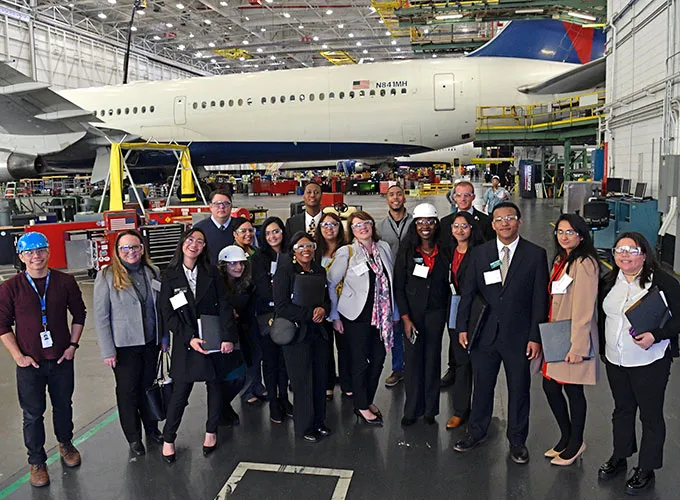Business Internships and Engaged Learning Projects

About BUSINESS INTERNSHIPS
The School of Business (SBA) Internship program is an opportunity to apply your academic knowledge, skills, and abilities in a real-world setting while developing your career.
SBA interns are involved in the day-to-day operations of diverse organizations in the private and public sectors – from financial services to supply chain management. As an intern, you will apply the knowledge you've gained in your chosen program of study to solve challenges faced by today's businesses. The internship experience may even give you a chance to begin a full-time career after graduation.
You may be eligible to earn course credit when enrolled in a Business Internship Experience course (ACCT 4751, BUSA 4751, FINA 4751, MIS4751, MKTG 4751 or SCM4751). To qualify for academic credit, you will work at least 120 hours in the internship during the semester and attend a weekly class session. The timing and length of the internship may vary by employer. The academic experience complements the real-world experience by focusing on topics such as professionalism, teamwork, communication, business etiquette and personal branding. It is recommended that this course be taken in the junior or senior year.
For questions about the academic Internship Program and the Business Internship Experience course, please contact Dr. Marvin Bontrager at mbontrager [at] ggc.edu (mbontrager[at]ggc[dot]edu). Internship opportunities and career readiness resources are also available through Career Services.
Examples of just some of our recent internships include the following:
- AGL CPA Group
- Alpha Creek Accounting
- Amazon
- Aprio
- Carr, Riggs, & Ingram
- CVS
- DHL
- Enterprise Mobility
- Fiserv
- Georgia Power Company
- Home Depot
- Majors Management
- Mansfield Energy Corporation
- PwC
- Target
- UPS
- Walgreens
- Walt Disney
- Wells Fargo
About ENGAGED LEARNING PROJECTS
The School of Business has a strong history of incorporating service learning projects into class assignments, giving students real world experience and exposure to community and private sector interaction.
Service learning opportunities inspire students to be civically engaged and assist in applying theory to practice. When students engage in a service learning project, they not only transfer their knowledge from the classroom but apply leadership and collaboration skills that simulate work environments.
Examples of service learning projects include management information systems (MIS) students participating in semester-long group projects to analyze, design and develop a system solution to a business problem for a client. In management/leadership courses, students collaborate with for-profit and non-profit organizations to raise awareness and/or funds and to address organizational challenges. Economic students also participate in service learning by teaching business topics to middle school students at Junior Achievement.
Business courses also embed real-world experiential learning opportunities. In one example, students develop skills in interviewing, networking, teamwork and project planning throughout the coursework. The resulting annual GEAR conference, open to all business students, connects students with high demand professionals in the local business community.
